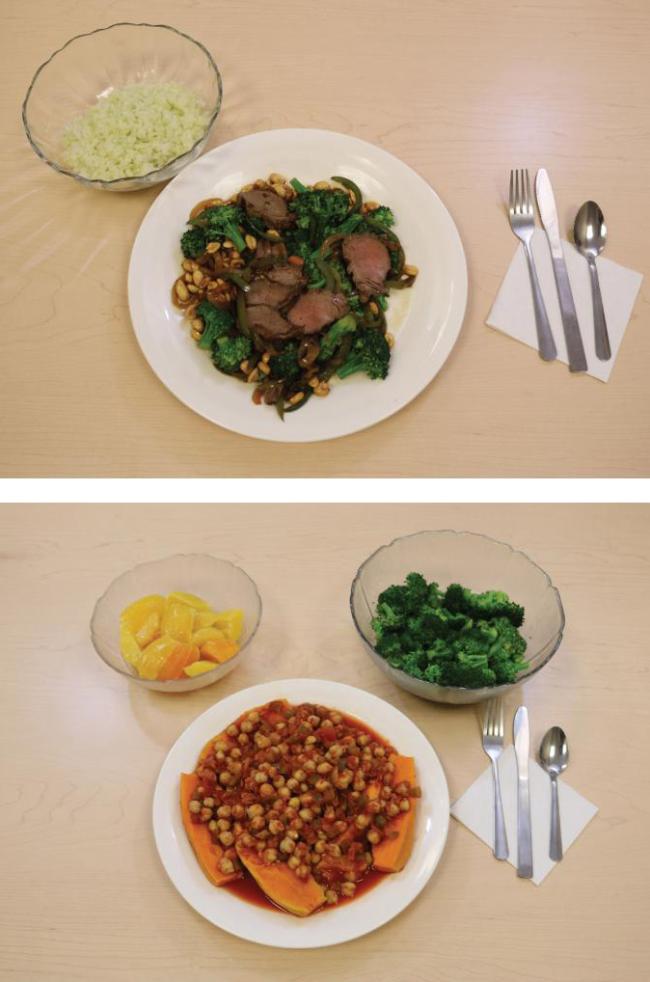Low-fat diet compared to low-carb diet
February 9, 2021
Low-fat diet compared to low-carb diet
At a Glance
- People ate fewer daily calories but had higher insulin and blood sugar levels on a low-fat, plant-based diet than when on a low-carbohydrate, animal-based diet.
- The results broaden our understanding of how restricting dietary carbohydrates or fats in the diet may impact health.

The amount and types of food available to the average person have changed over time. These changes are believed to contribute to the rise in obesity by promoting increased calorie intake. Excess weight can cause various health problems, including diabetes, heart disease, and stroke.
There has been a great deal of debate over what aspects of our food have promoted obesity. High carbohydrates are believed to result in large swings in your body’s insulin levels, which may cause increased hunger and calorie consumption. High-fat foods may promote increased calorie consumption because they contain more calories per bite and can leave you feeling less full.
To determine whether high-carb or high-fat diets result in greater calorie intake, researchers led by Dr. Kevin Hall of NIH’s National Institute of Diabetes and Digestive and Kidney Diseases (NIDDK) studied 20 adults (11 women and 9 men) without diabetes who stayed for four continuous weeks in the NIH Clinical Center’s Metabolic Clinical Research Unit. Researchers compared the effects of the diets on calorie intake, hormone levels, body weight, and more. Results were published on January 21, 2021 in Nature Medicine.
For the first two weeks, participants received either a plant-based, low-fat diet with a high amount of carbohydrates or an animal-based, low-carb diet that was high in fat. They were then given the other diet the following two weeks. They received three meals a day, plus snacks, and could eat as much or as little as desired.
The plant-based, low-fat diet contained about 10% fat and 75% carbohydrate. The animal-based, low-carb diet was about 10% carbohydrate and 75% fat. Both contained about 14% protein and were matched for total calories. However, the low-carb diet had twice as many calories per gram than the low-fat diet, and the low-fat diet resulted in much higher insulin levels after meals. Both diets were minimally processed and had equivalent amounts of non-starchy vegetables.
When on the low-fat diet, the participants ate 550 to 700 fewer calories per day than when on the low-carb diet. Despite the large differences in calorie intake, they reported no differences in hunger, enjoyment of meals, or fullness between the two diets.
People lost weight on both diets, but only the low-fat diet led to a significant loss of body fat. The low-fat diet resulted in higher blood glucose and insulin levels compared with the low-carb diet. This is a concern because variable glucose levels can be a risk factor for coronary artery disease.
“Interestingly, our findings suggest benefits to both diets, at least in the short-term. While the low-fat, plant-based diet helps curb appetite, the animal-based, low-carb diet resulted in lower and more steady insulin and glucose levels,” Hall says. “We don’t yet know if these differences would be sustained over the long term.”
The researchers note that the study was not designed to make diet recommendations for weight loss. Results may have been different if the participants were actively trying to lose weight. Further, results may be different outside the lab, in which all meals were prepared and provided in a tightly controlled clinical environment. Factors such as food costs, food availability, and meal preparation constraints can make adherence to diets challenging.
Related Links
- Eating Highly Processed Foods Linked to Weight Gain
- Biological Factors and Weight Loss Methods
- How Dietary Factors Influence Disease Risk
- Eating Red Meat Daily Triples Heart Disease-Related Chemical
- Dietary Fat vs. Carbohydrate for Reducing Body Fat
- Healthy Eating Special Issue
- Digging a Vegetarian Diet: Plant-Based Eating Can Reap Rewards
- Healthy Eating Plan
- Understanding Adult Overweight & Obesity
References
Effect of a plant-based, low-fat diet versus an animal-based, ketogenic diet on ad libitum energy intake. Hall KD, Guo J, Courville AB, Boring J, Brychta R, Chen KY, Darcey V, Forde CG, Gharib AM, Gallagher I, Howard R, Joseph PV, Milley L, Ouwerkerk R, Raisinger K, Rozga I, Schick A, Stagliano M, Torres S, Walter M, Walter P, Yang S, Chung ST. Nat Med. 2021 Jan 21. doi: 10.1038/s41591-020-01209-1. Online ahead of print. PMID: 33479499.
Funding
NIH’s National Institute of Diabetes and Digestive and Kidney Diseases (NIDDK) and National Institute of Nursing Research (NINR); Rockefeller University.


